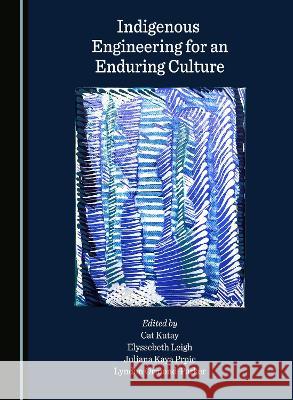Indigenous Engineering for an Enduring Culture » książka
Indigenous Engineering for an Enduring Culture
ISBN-13: 9781527589803 / Angielski
For many millennia, Indigenous Australians have been engineering the landscape using sophisticated technological and philosophical knowledge systems in a deliberate response to changing social and environmental circumstances. These knowledge systems integrate profound understanding of country and bring together knowledge of the topography and geology of the landscape, its natural cycles and ecological systems, its hydrological systems and natural resources including fauna and flora. This enables people to manage resources sustainably and reliably, and testifies to a developed, contextualised knowledge system and to a society with agency and the capability to maintain and refine accumulated knowledge and material processes.This book is a recognition and acknowledgement of the ingenuity of Indigenous engineering which is grounded in philosophical principles, values and practices that emphasise sustainability, reciprocity, respect, and diversity, and often presents a much-needed challenge to a Western engineering worldview.Each chapter is written by a team of authors combining Indigenous knowledge skills and academic expertise, providing examples of collaboration at the intersection of Western and Indigenous engineering principles, sharing old and new knowledges and skills. These varied approaches demonstrate ways to integrate Indigenous knowledges into the curricula for Australian engineering degrees, in line with the Australian Council of Engineering Deans' Position Statement on Embedding Aboriginal and Torres Strait Islander perspectives into the engineering curriculum first published in 2017.











